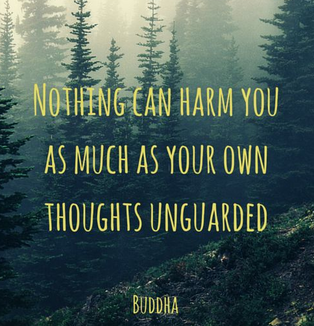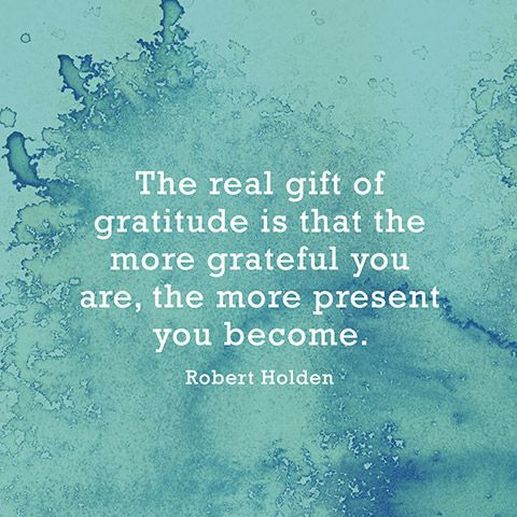An Attitude of Gratitude
I’m feeling a great deal of gratitude this season, albeit mixed with pain.
Gratitude because my youngest son is taking positive steps to extricate himself from a years-long toxic relationship, and start a life as a single father. Pain because his partner has alleged child abuse and is preparing to fight him for full custody of their 3-year-old son. She says she has also filed abuse charges against me, although I have received no notification.
 I have no worries about the charges, but I’ve been so mad I could spit for most of the holidays. However, I’m proud of my son for standing firm while considering his son’s best interests in every interaction.
I have no worries about the charges, but I’ve been so mad I could spit for most of the holidays. However, I’m proud of my son for standing firm while considering his son’s best interests in every interaction.
He’s heading back to his apartment, to continue house-hunting and packing after meeting with his lawyer. This will be an anxiety-fraught New Year, but he knows we will stand by his side in support no matter what he decides going forward. And we will continue to love this tiny being who calls him “Daddy” and be grateful for the time we have with him in the future.
Research has shown that being grateful has a deep and lasting positive impact on your body. Good friends, family, the kindness of others. Scientists are saying that feeling gratitude for the good things in our lives, instead of dwelling on the negative aspects, boosts out physical health as much as our mental state. Recent studies have linked living a thankful life to fewer aches and pains, better sleep, and more.
Of course, when experts talk about gratitude, they mean more than simply saying the “thank you” you’ve been taught since you were old enough to talk.
 “Gratitude is affirming the goodness in one’s life and recognizing that it, and recognizing that its source lies outside the self,” says Robert Emmons, Ph.D., a professor of psychology at University of California-Davis, and author of The Little Book of Gratitude. He says it’s feeling indebted—not just to for the neck massager you received as a gift for Yule, but also to nature for a crisp winter morning.
“Gratitude is affirming the goodness in one’s life and recognizing that it, and recognizing that its source lies outside the self,” says Robert Emmons, Ph.D., a professor of psychology at University of California-Davis, and author of The Little Book of Gratitude. He says it’s feeling indebted—not just to for the neck massager you received as a gift for Yule, but also to nature for a crisp winter morning.
Emmons has been studying the connection for more than fifteen years. In an early study, he asked a group of volunteers to write down five things they were grateful for once a week for ten weeks. Sample entries: “The sun on my face”; “Becoming a grandparent.” Other groups recorded either small hassles or neutral daily events. At the end of the study, the blessing-counters reported feeling 25% happier, but the rest of the findings were more tangible: The people who practiced gratitude spent 30% more time exercising and had fewer health complaints.
In another study by the Journal of Health Psychology, subjects who kept a gratitude journal for just two weeks slept better and had lower blood pressure readings. Other research found this kind of journaling resulted in a 40% drop in daily smoking rates after two months.
This all indicates that there’s a powerful connection between our minds and our bodies. Researchers have some theories that could help explain it. For one thing, when we feel overwhelmed—whether by work deadlines or family squabbles—our nervous systems go into a state of high alert. The body floods with stress hormones like cortisol, which over time can cause a cascade of health problems, from high blood pressure to inflammation. The sense of profound well-being that washes over us when we feel grateful sends a message to our systems that all is well, quieting those responses. “Feelings of gratitude trigger the parasympathetic, or calming, branch of the nervous system,” says Emmons.
Perhaps the biggest payoff comes when we feel indebted to ourselves in the same way we do to others. “People often report feeling grateful for their bodies, for the ability to see, smell and hear,” says Emmons. “As a result, they take better care of themselves.”
 Simple Ways to Feel More Grateful
Simple Ways to Feel More Grateful
Gratitude is a choice. We can create it at any moment in our lives. Like any practice, it becomes more automatic. Here are some ways to make gratitude your new default setting.
Write it Down
One of the most studied methods is to keep a gratitude journal. The experts suggest you write down a handful of good things per day. To get the most out of this practice, don’t just dash off a short laundry list. Instead, stop and contemplate why you feel grateful, being as specific as possible. Try for 3 or 4 sentences about each positive thing.
Give Yourself Gratefulness Reminders
Stop several times throughout the day to notice, appreciate, and savor the good in your life. You might think of something you’re grateful for each time you walk inside or outside: The sunlight on your face, the smell of coffee when you walk back inside, or your dog’s happy greeting.
Go Mobile
Try an app like Gratitude Journal, which pings you with prompts. Share your posts with friends on Facebook, or set up a Gratitude section on your Pinterest. Or click through the website thnx4.org, which as developed by UC-Berkley’s Greater Good Science Center to act as an electronic storehouse of positivity.
Say it out Loud
Find opportunities to express your appreciation to another person, and do it in a way that acknowledges the giver rather than how his or her act makes you feel. Say how the other person’s efforts or qualities help you, for example. Psychologist Sara Algoe, Ph.D., and associate professor of social psychology at the University of North Carolina-Chapel Hill, calls this, “putting the ‘you’ in ‘thank you’.”
Focus on Little Surprises
We tend to think of the things we’re grateful for in capital letters. Family, Health, Financial Stability. Also look around for surprising little acts of kindness to give yourself a gratitude reboot. Remember the person who held the door for you going into the store, or the driver who made a space to let you get out of the parking lot onto a crowded street.
It’s so easy to slip into negative thought about our lacks, or the corruption in government, or your impossible to-do list at work. Remember to take the time to weave a healthy, happy of circle gratitude around you as well.
Blessed Be! And happy New Year.
Gratitude because my youngest son is taking positive steps to extricate himself from a years-long toxic relationship, and start a life as a single father. Pain because his partner has alleged child abuse and is preparing to fight him for full custody of their 3-year-old son. She says she has also filed abuse charges against me, although I have received no notification.
 I have no worries about the charges, but I’ve been so mad I could spit for most of the holidays. However, I’m proud of my son for standing firm while considering his son’s best interests in every interaction.
I have no worries about the charges, but I’ve been so mad I could spit for most of the holidays. However, I’m proud of my son for standing firm while considering his son’s best interests in every interaction.
He’s heading back to his apartment, to continue house-hunting and packing after meeting with his lawyer. This will be an anxiety-fraught New Year, but he knows we will stand by his side in support no matter what he decides going forward. And we will continue to love this tiny being who calls him “Daddy” and be grateful for the time we have with him in the future.
Research has shown that being grateful has a deep and lasting positive impact on your body. Good friends, family, the kindness of others. Scientists are saying that feeling gratitude for the good things in our lives, instead of dwelling on the negative aspects, boosts out physical health as much as our mental state. Recent studies have linked living a thankful life to fewer aches and pains, better sleep, and more.
Of course, when experts talk about gratitude, they mean more than simply saying the “thank you” you’ve been taught since you were old enough to talk.
 “Gratitude is affirming the goodness in one’s life and recognizing that it, and recognizing that its source lies outside the self,” says Robert Emmons, Ph.D., a professor of psychology at University of California-Davis, and author of The Little Book of Gratitude. He says it’s feeling indebted—not just to for the neck massager you received as a gift for Yule, but also to nature for a crisp winter morning.
“Gratitude is affirming the goodness in one’s life and recognizing that it, and recognizing that its source lies outside the self,” says Robert Emmons, Ph.D., a professor of psychology at University of California-Davis, and author of The Little Book of Gratitude. He says it’s feeling indebted—not just to for the neck massager you received as a gift for Yule, but also to nature for a crisp winter morning.Emmons has been studying the connection for more than fifteen years. In an early study, he asked a group of volunteers to write down five things they were grateful for once a week for ten weeks. Sample entries: “The sun on my face”; “Becoming a grandparent.” Other groups recorded either small hassles or neutral daily events. At the end of the study, the blessing-counters reported feeling 25% happier, but the rest of the findings were more tangible: The people who practiced gratitude spent 30% more time exercising and had fewer health complaints.
In another study by the Journal of Health Psychology, subjects who kept a gratitude journal for just two weeks slept better and had lower blood pressure readings. Other research found this kind of journaling resulted in a 40% drop in daily smoking rates after two months.
This all indicates that there’s a powerful connection between our minds and our bodies. Researchers have some theories that could help explain it. For one thing, when we feel overwhelmed—whether by work deadlines or family squabbles—our nervous systems go into a state of high alert. The body floods with stress hormones like cortisol, which over time can cause a cascade of health problems, from high blood pressure to inflammation. The sense of profound well-being that washes over us when we feel grateful sends a message to our systems that all is well, quieting those responses. “Feelings of gratitude trigger the parasympathetic, or calming, branch of the nervous system,” says Emmons.
Perhaps the biggest payoff comes when we feel indebted to ourselves in the same way we do to others. “People often report feeling grateful for their bodies, for the ability to see, smell and hear,” says Emmons. “As a result, they take better care of themselves.”
 Simple Ways to Feel More Grateful
Simple Ways to Feel More GratefulGratitude is a choice. We can create it at any moment in our lives. Like any practice, it becomes more automatic. Here are some ways to make gratitude your new default setting.
Write it Down
One of the most studied methods is to keep a gratitude journal. The experts suggest you write down a handful of good things per day. To get the most out of this practice, don’t just dash off a short laundry list. Instead, stop and contemplate why you feel grateful, being as specific as possible. Try for 3 or 4 sentences about each positive thing.
Give Yourself Gratefulness Reminders
Stop several times throughout the day to notice, appreciate, and savor the good in your life. You might think of something you’re grateful for each time you walk inside or outside: The sunlight on your face, the smell of coffee when you walk back inside, or your dog’s happy greeting.
Go Mobile
Try an app like Gratitude Journal, which pings you with prompts. Share your posts with friends on Facebook, or set up a Gratitude section on your Pinterest. Or click through the website thnx4.org, which as developed by UC-Berkley’s Greater Good Science Center to act as an electronic storehouse of positivity.
Say it out Loud
Find opportunities to express your appreciation to another person, and do it in a way that acknowledges the giver rather than how his or her act makes you feel. Say how the other person’s efforts or qualities help you, for example. Psychologist Sara Algoe, Ph.D., and associate professor of social psychology at the University of North Carolina-Chapel Hill, calls this, “putting the ‘you’ in ‘thank you’.”
Focus on Little Surprises
We tend to think of the things we’re grateful for in capital letters. Family, Health, Financial Stability. Also look around for surprising little acts of kindness to give yourself a gratitude reboot. Remember the person who held the door for you going into the store, or the driver who made a space to let you get out of the parking lot onto a crowded street.
It’s so easy to slip into negative thought about our lacks, or the corruption in government, or your impossible to-do list at work. Remember to take the time to weave a healthy, happy of circle gratitude around you as well.
Blessed Be! And happy New Year.
Published on December 28, 2018 18:47
No comments have been added yet.



